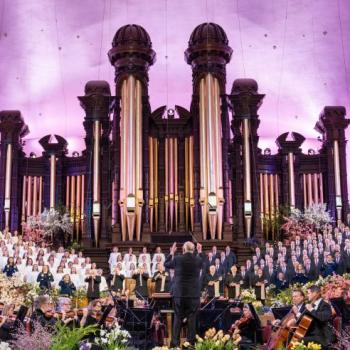 By J. Matthew Wilson
By J. Matthew Wilson
Looking forward, the Catholic Church in the United States faces two major challenges as it seeks to engage national politics. One difficult task is to maintain unambiguously the primacy of the human life issue in faithful Catholics' approach to politics, while at the same time emphasizing the breadth of its moral teaching on a range of other important sociopolitical questions. Another significant challenge -- but at the same time a great opportunity -- is presented by the changing ethnic complexion of the American Church. The power and effectiveness of the Church's prophetic voice in the political arena will largely be determined by how it responds to these challenges in the coming years and decades.
In its engagement with politics, the Church has no choice but to focus first and foremost on abortion, as long as that practice is legal in the United States. Since the Church teaches unequivocally that human life begins at conception, the million abortions that take place in this country every year dwarf, in sheer moral magnitude, all of the wars, executions, etc., in which the United States has ever been involved. Moreover, in the Church's view, abortion is categorically, not circumstantially, wrong; unlike, for example, a decision to go to war, the decision to abort a child is always and by definition immoral. Thus, a pro-life stance must remain the central prism through which the Church views the political world.
At the same time, however, the American Church can and must do a better job of communicating, both to its own members and to those beyond itself, the range and force of its position on other morally consequential political questions. Everyone in America, both Catholic and otherwise, knows that the Church opposes abortion. How many, by contrast, know that the Church champions the human rights of immigrants, both documented and undocumented? How many know that the American Church has been advocating universal access to health care for over eighty years? How many understand the basis for the Church's opposition to same-sex unions, or to the death penalty? In order to broaden the reach of its political influence, the American Church must increase the force and prominence of its advocacy on these issues, making clear that the pre-eminence of the abortion issue in partisan and candidate choice does not preclude the faithful from activism on these other moral issues, many of which tend to align the Church with the political left.
One population among whom this diverse range of issue positions should really resonate is Latinos. Both surveys and anecdotal accounts consistently suggest that Hispanic Americans (and, more specifically, Hispanic Catholics) are more conservative than their Anglo counterparts on human life and family issues; they are significantly less likely to endorse legalized abortion and same-sex marriage. At the same time, however, they are much more liberal on welfare-state issues and, of course, on immigration policy. This particular constellation of policy preferences matches up almost exactly with that of the U.S. Conference of Catholic Bishops. To be sure, the voting behavior of many Latinos suggests that they prioritize economic and ethnic concerns over human life and family values issues, which is not what Church leaders would counsel. Still, Hispanic Catholics would seem a naturally receptive audience for the sort of life-centered but broadly inclusive policy agenda that the Church will need to offer going forward.
This is a good thing for the American Church, because it will inevitably become less Anglo and more Latino in the decades to come. In many ways, this demographic transformation within American Catholicism will take the Church in this country back to its roots. For most of American history, the Catholic Church was an immigrant Church; its adherents were disproportionately new arrivals and their children. These Catholics were often socially marginalized, and tended to be less educated and less affluent than other Americans. Beginning in the 1960s, however, the American Church started to lose this immigrant character. The descendants of those immigrants from Ireland, Poland, Italy, and elsewhere were going to college, moving to the suburbs, and entering the American social and economic mainstream. By the end of the 20th century, American Catholic congregations were dramatically wealthier, better educated, and more in the American mainstream than they had been fifty years before.
The influx of Hispanic Catholics and the growing secularism of European-Americans will necessarily bring some of the immigrant flavor back to the Catholic Church in this country. This, in turn, will inevitably affect the Church's engagement with politics. Advocacy for the poor, the ostracized, and the socially marginal will no longer be simply an abstract concern rooted in Christian charity; it will be a response to the lived experience of many in the pews.




